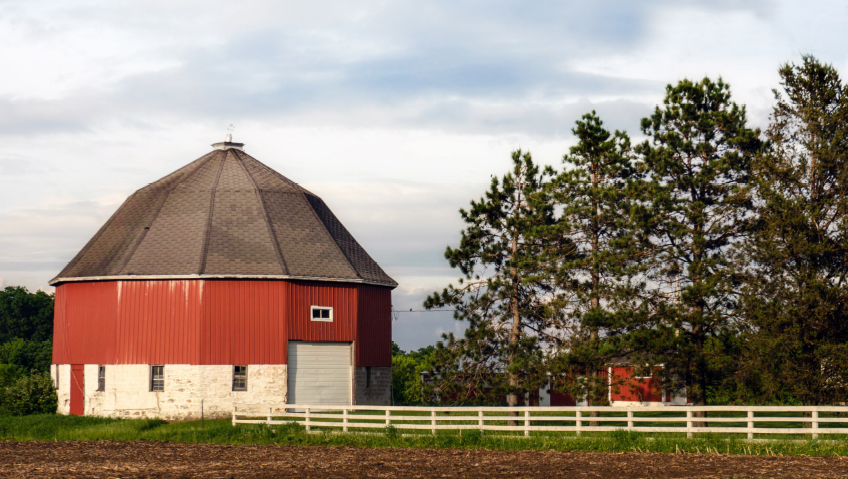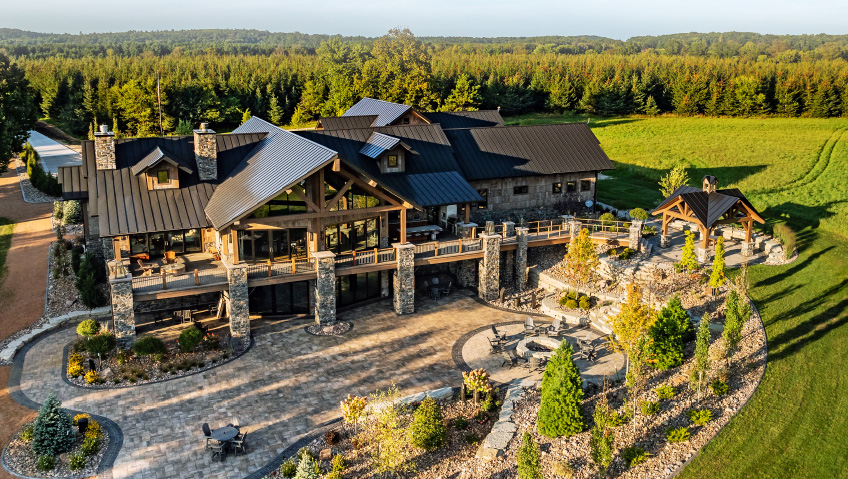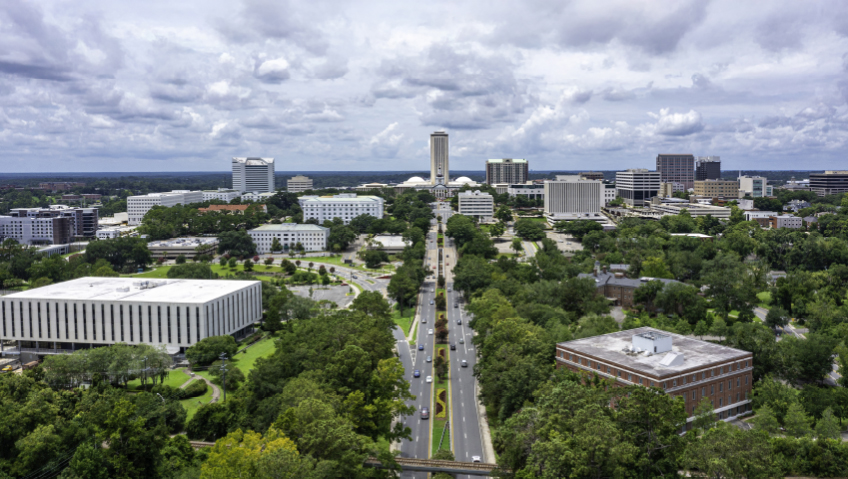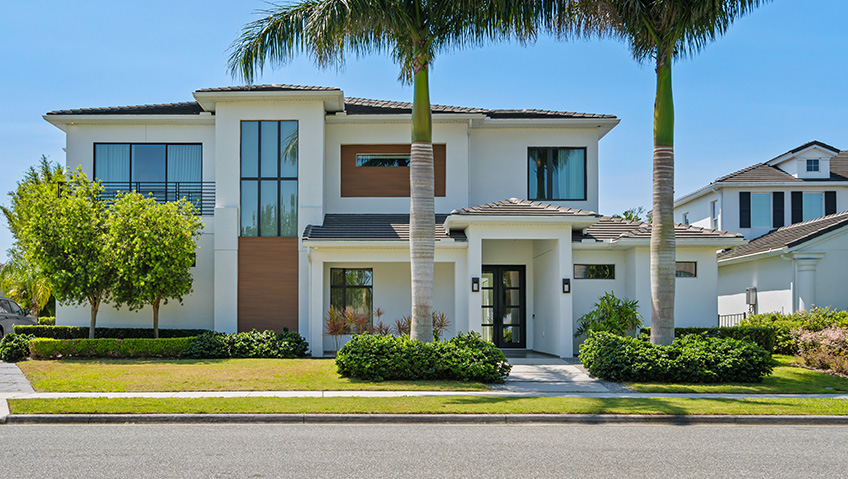With the goal of supporting the prosperity of commercial, industrial, entrepreneurial, and agricultural businesses while fostering robust economic development for communities in Juneau County, Wisconsin, Juneau County Economic Development Corporation (JCEDC) works at the national, state, regional, county, and local levels. Through cooperation with public and private organizations and individuals, the organization provides services to boost business success in the county.
“What’s really great about this organization is that it started as a grassroots function from the community, with some local employees and business owners,” says Tamaya Jo Loewe, Executive Director of the Juneau County Economic Development Corporation (JCEDC). “It wasn’t a government idea; it’s always been driven by a strong membership base and as we’re now partnered with our county, we get the majority of our funding through there, so it’s been a really strong public/private partnership.”
The JCEDC strives to find and draw top-notch, community-minded, sustainable companies to the county and surrounding area, promote internal entrepreneurial growth, increase the number of tourism and service-related businesses, and encourage growth by leveraging market activity from previous business developments, to name just a few of its mandates.
“We really try to drive the economy in terms of serving our business population,” says Loewe. While that has looked different over the decades, during Loewe’s nearly 12 years with the organization, the primary emphasis has been on workforce development. “Our populations are shifting in generational sizes, but to deal with workforce, we really had to scratch that surface, which opened up opportunities in housing, childcare, and skills training,” she explains. “We have a strong manufacturing cluster here as well as a lot of really robust services, along with outdoor recreation. Those are our big three.”
Juneau County also houses a strong inventors and entrepreneurs club, which JCEDC has worked with over the years. When the area lost a major business almost 15 years ago, leading to the layoffs of numerous employees, a number of those people spun off into their own businesses that are still thriving today.
Of course, there’s no homegrown business success without excellent connectivity. Chris Heffel, who not only sits on Loewe’s Board of Directors with JCEDC but is also the Director of Sales and Marketing with local internet service provider Lynxx Networks, has done a “phenomenal job” with the region’s connectivity, a key factor in the county’s ongoing success. “Lynxx has been a pioneer in that the leading speeds available on the planet are also available right here in this very rural, beautiful community,” Loewe says.
That connectivity makes it easy for startup businesses as well as remote workers or those who are normally plugged into a Chicago or Minneapolis, perhaps visiting or vacationing, to stay tapped into what they need to do while enjoying a more relaxed lifestyle. “We’re in the middle of nowhere—genuinely—right between three metropolitan areas,” adds Heffel. “However, we have communication, transportation, infrastructure, and natural resources. It’s a good spot for a business.”
By providing dependable communication via fast, reliable internet no matter where you are, Juneau County offers a plethora of work and play possibilities that attract both visitors and residents. “We have a modern business climate here, partly because we’re right on the interstate, 45 minutes from La Crosse and an hour from Madison,” says Heffel. “We have tech workers here. Chicago is three hours away, and we have whole communities of people from Chicago who own a house up here, are here only on the weekends, then they go back home.”
Those tourists and weekend visitors are good for the economy, and everyone appreciates the benefits they bring, he adds. “We’re dead center between Minneapolis and Chicago, right on the interstate. I like to say we’re the biggest state park in Chicago, and it does feel like all the Chicagoans come up and play here.”
With all that natural beauty being enjoyed on a regular basis, does sustainability and environmentalism factor in when JCEDC looks to attract businesses? While economic development is, of course, essential, so, too, is maintaining rural roots.
“You might expect economic development boards to bring in factories or big box stores, but we really try to be more selective than that,” says Loewe. “Many folks are born and raised here, but many came from elsewhere. I’m a Wisconsinite, but I lived on the East Coast in Boston, Massachusetts for nearly 20 years. Many have a story like that—they’ve gone to the big city and returned, because we just love the quality of life here.”
Juneau County attracts those who enjoy the outdoors and those who want to wake up to trees outside their windows instead of concrete, she adds. To that end, JCEDC strives to maintain a balance between providing industrial and transportation access with the natural beauty of the area. Working to support medical and outdoor recreation equipment manufacturing industries amongst the region’s many parks and a National Wildlife Refuge can be a challenge, but a welcome one.
“Our job is to build and grow the economy, but none of us want to see it changed,” Loewe says. “We don’t want to change the character so much that it’s no longer the amazing, attractive place that it is.”
And while tourism brings in substantial dollars, there are some frustrations tied to those who visit for a weekend and leave behind unwanted trash. The alternative, however, would mean more buildings, whether homes or condos, which would also adversely affect the overall character of the area. “Our tourism is basically, ‘come here and get away from it all for a little bit, and then go back to work later,’” says Heffel. “We’re not doing thrill rides and roller coasters and that kind of tourism.”
In fact, the county’s largest city and county seat, Mauston, has claimed the brand of “naturally connected” for the past 10 years, adds Loewe. “When families can unplug even a little bit, you get into a different scenario,” she says. “You’re spending times with your kids at the beach or on a boat, reconnecting as families and friends.”
Many of Juneau County’s residences are also second homes, with owners taking advantage of a quarter-acre property with a cabin on lakes that are the second and fourth largest in the whole state. “They have beachfront property, something safe for the kids, and all of those homes get all the services, including high-speed internet.”
Again, it’s that connectivity that has played a huge role in attracting both visitors and new residents to the area. “The heart of this county has had fiber since 2008, which was very early in the fiber game,” says Heffel. “If you look at historical maps and watch the growth, you can see those cities without fiber haven’t changed. They haven’t grown. They’re the same town they were 25 years ago.”
But areas with fiber have attracted businesses calling for communications infrastructure, which is where the growth has occurred. “Attracting people to a community used to be about good schools, safety, grocery, close proximity to medical—things which are still really important,” adds Loewe. “Optional elements would be a fun coffee shop or internet connectivity; the latter used to fall into that category but is now mandatory.”
Fiber also allows for more sophisticated medical care capabilities, with local patients able to tap into specialists located in Madison, for example, via video, a capability of elevated medical care that has really jumped in recent years.
In terms of challenges, organizational funding is one JCEDC has faced, with the economy stretched thin and tax dollars not going as far, making it harder for the county to allocate funds toward forward-thinking organizations like JCEDC. But that hasn’t deterred JCEDC from looking ahead, particularly as it plans for an exciting community center project to be located in Mauston. Designed with a reinforced internal structure to act as an emergency storm shelter during potential tornadoes, the building will be the first of its kind, featuring basketball and pickleball courts, an elevated walking track, a large venue to be rented out for weddings, and more. “Although it’s still a few years off, we’re looking forward to it,” Loewe shares.
In the meantime, Juneau County will continue to tout its variety of benefits for tourists and residents, particularly when it comes to work and play in a stunning, natural environment. Beyond just jobs, the area attracts people who have a calling to nature and the desire to explore the advantages of work-life balance and solid community connection.
“The manufacturing jobs are great; there are good paying jobs, living here,” says Loewe. “And you can get out of work in the afternoon and hit the ATV trail or go hunting or fishing. You’ve got the rest of your day, and you don’t have to drive two or three hours to get to that cool place. That’s a huge attractor.”
And that is essentially what JCEDC’s push is, she adds. “We really look to serve the current businesses here, help them to grow, expand, get what they need, and we also look at attraction for additional businesses coming in that will help round out our portfolio. We like to be as diverse as possible in terms of industry, and that has served us really well.”






